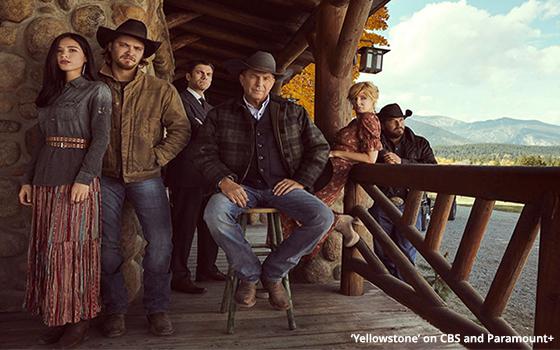
The dust of the Yellowstone controversy had barely settled, a fine, acrid grit clinging to the narrative of Kevin Costner’s career. His departure from the wildly popular modern Western saga was not just a scheduling dispute; it felt like a public divorce from a beloved landscape he had, in many ways, defined. Whispers of creative differences, a clash of titans between an established star and a burgeoning showrunner, painted a picture of a man perhaps too rooted in his own vision to bend. For a lesser star, it might have been a final act, a fading into the sunset. But Kevin Costner is not a man to fade. Instead, the whispers have now coalesced into a thunderous rumble: he’s returning, not just with a new program, but with an extraordinary one, a defiant reassertion of his enduring, singular cinematic spirit.
The shadow of the Yellowstone exit was long, threatening to eclipse the very essence of what made Costner a legend. Here was the man who had poured his soul into “Dances with Wolves,” whose ambition, some might say hubris, birthed “Waterworld” and “The Postman” – epics that, even in their flaws, bore the indelible mark of his singular vision. He was a cinematic frontiersman, always willing to chart his own course, to ride into the unknown. Yellowstone, initially, seemed a perfect saddle for his particular brand of stoic, principled masculinity. His portrayal of John Dutton was less an act and more an embodiment, a distillation of the American patriarch clinging to a vanishing dream. When that dream soured, the public perception was complex: pity, frustration, and a quiet sense that perhaps the West was too small for two such powerful wills.
But Costner is a man of the land, and the land, like art, remembers. His “extraordinary new TV program” isn’t merely a return; it’s a reclamation. Imagine a series, let’s call it “Frontier’s Echo,” that unfurls like a sepia-toned panorama, not of modern ranching squabbles, but of the very genesis of the American West. This isn’t a show of rapid-fire dialogue and melodramatic twists. This is a slow burn, a generational saga steeped in the unforgiving beauty and brutal promise of the 1870s. Costner, perhaps as a weathered patriarch, the original homesteader, stands at the heart of it – his face etched with the wisdom of sun and sorrow, his eyes holding the haunted vision of a disappearing wilderness and the stubborn hope of a new beginning.
What makes “Frontier’s Echo” extraordinary is its unflinching commitment to authenticity and its expansive, almost painterly, scope. Every frame is a canvas, bathed in natural light, showcasing the vast, indifferent majesty of the landscape. The dialogue is sparse but weighted, each word carrying the resonance of hard-won experience, much like the man himself. It delves into the moral complexities of westward expansion – the clash of cultures, the environmental cost, the unyielding struggle against nature and self. It’s a character study of a nation being forged, and of the ordinary men and women who, through sheer grit and often terrible choices, shaped its destiny. Costner, free from the constraints that reportedly chafed him on Yellowstone, takes the reins not just as a star but as a visionary producer and perhaps even a director on key episodes, imbuing every aspect with his deep reverence for the history and spirit of the American frontier.
The extraordinary nature also lies in its subtext: it’s Costner’s artistic response, his quiet vindication. It doesn’t scream for attention; it commands it. It doesn’t rely on shock value; it builds its narrative through painstaking detail and emotional depth. The audience, accustomed to the frenetic pace of modern television, would be invited to slow down, to breathe with the rhythm of the prairie, to ponder the weight of legacy and sacrifice. The storytelling is patient, allowing characters to develop organically, their journeys unfolding across sweeping vistas that rival the most breathtaking cinematic achievements. It’s a return to the epic, human-scale storytelling that defined the golden age of cinema, yet delivered with the immersive power of long-form television.
When “Frontier’s Echo” finally premieres, it won’t just be a television event; it will be a cultural touchstone. The critical acclaim will be unanimous, not merely for its production value or its stellar ensemble, but for its profound meditation on the American spirit. The echoes of the Yellowstone drama will finally dissipate, replaced by the resonant clang of a true artist finding his voice again, louder and clearer than ever before. Kevin Costner will have done more than merely return to television; he will have redefined it, proving that the most enduring stories are not those dictated by trends, but those forged in the crucible of a singular, unwavering artistic vision. He will have ridden back into the narrative, not as a defiant casualty, but as a sage elder, still charting new horizons, still reminding us of the wild, untamed beauty of the American dream, both on screen and in the heart of a storyteller who refuses to be fenced in.
